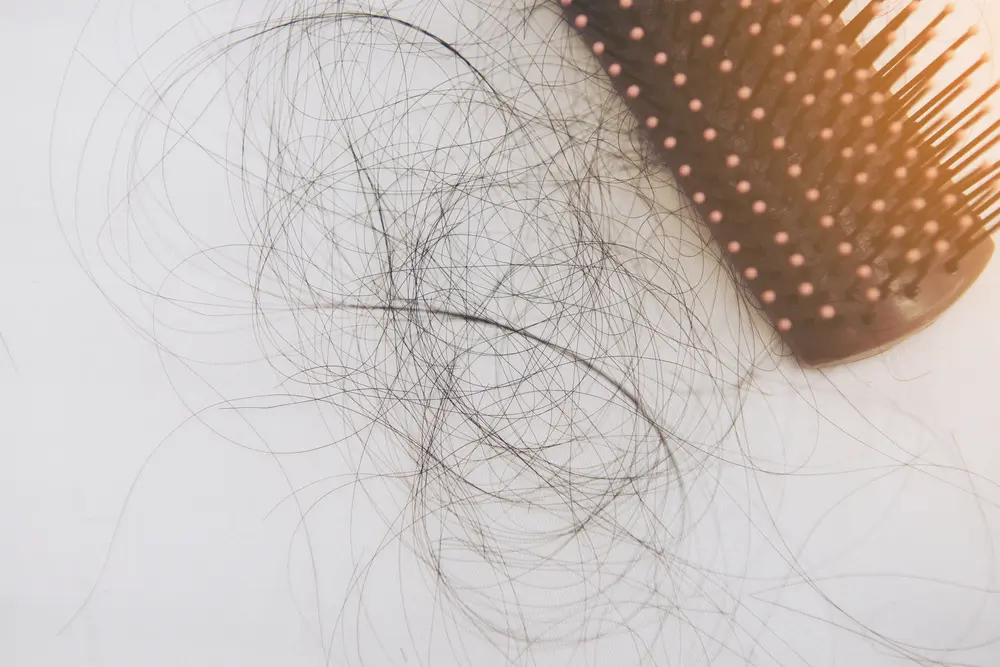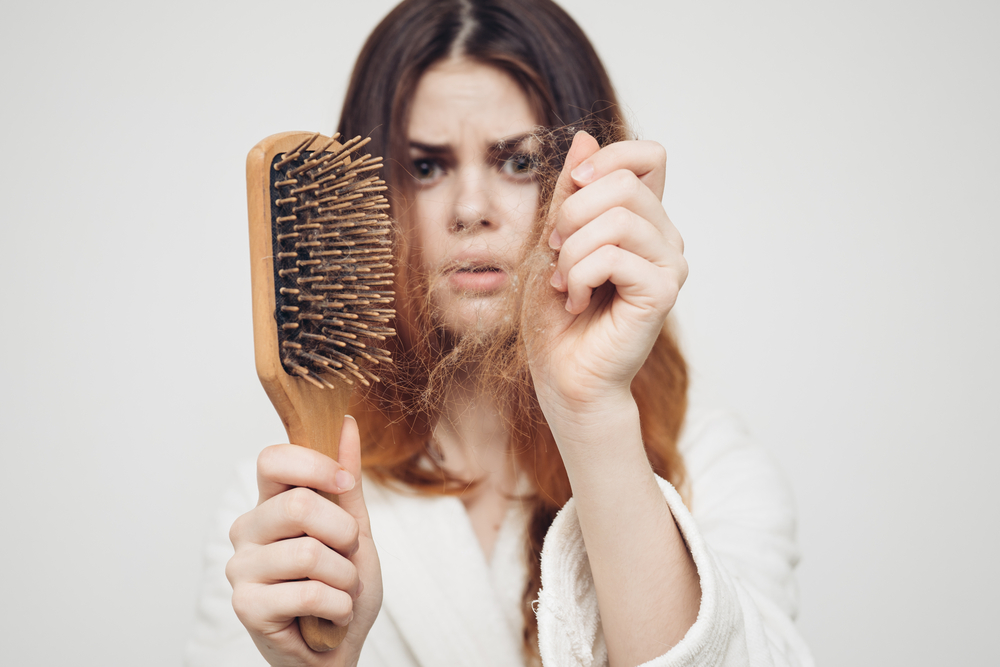Why is my hair falling out? – causes of hair loss in women
What causes hair loss in women?
Women often present to their GP with concerns about hair loss. There are many conditions that can lead to thinning of the hair.
Here are 15 possible causes of hair loss in women- some quite common, some very rare. We’ll look at medical conditions, hormonal problems, family history, lifestyle factors, and rarer causes.
Medical Conditions
Acute stress or illness
Acute events such as major surgery, serious infections, childbirth, or trauma are also possible causes of hair loss in women. Affected individuals may notice large amounts of hair on their pillow, hairbrush or in the plughole after a shower. The thickness of the hair usually returns to normal within a few months.
Anaemia
Low iron can also lead to thinning of the hair over time. In women, this is often due to heavy periods and/or low intake of iron in the diet (this is particularly an issue in vegetarians or vegans). A blood test to check the blood count (FBC) and iron studies will identify if this is the issue.
Skin Infections
Sometimes fungal scalp infections such as ringworm (tinea capitis) will cause patches of hair loss.
Long-term illness
Serious health conditions such as cancer, kidney or liver failure can all contribute to hair loss in women.
Medications
Hair loss in women can be a side effect of a medication ( e.g. beta-blockers, anti-clotting drugs, Lithium, carbamazepine and others). Anyone with hair loss who is on a regular medication should check the patient information leaflet in the pack, or speak to a doctor or pharmacist.
Autoimmune conditions
In Alopecia Areata, the hair follicles are attacked by a person’s own immune system, leading to partial or total hair loss. Also, in Lupus, there can be inflammation or scarring of the scalp, leading to hair loss.
Family history of hair loss
If there is a family history of hair loss in women (e.g mother, sisters, aunts or a grandmother), it may be a genetic condition known as androgenetic alopecia. This is common problem- around half of women will experience it at some stage, mainly above the age 50. However, sometimes younger women may be affected. Over time, the hair follicles shrink, the hairs become thinner and finer, until eventually they stop growing.
Hormonal changes
Pregnancy and Childbirth
Many women notice their hair becomes thicker during pregnancy. However, some will experience thinning. It’s important to have this checked by a doctor- whilst it may simply relate to hormonal changes, it may also be due to anaemia (low iron), thyroid disease or other underlying problems. And up to a half of women will experience significant hair loss a few months after having a baby- this is known as telogen gravidarum and is one of the more common causes of hair loss in women.
Thyroid Disease
Women suffering from an underactive thyroid (hypothyroidism) or an overactive thyroid (hyperthyroidism) may get generalised thinning of their hair. Symptoms of hypothyroidism include feeling cold, weight gain, low mood, poor concentration and tiredness. Symptoms of hyperthyroidism include feeling warm and sweaty, palpitations, nervousness, shaky hands, and unexplained weight loss. A blood test called a “thyroid function test” or “TFT” can be done by a doctor to check for this.
PCOS
Polycystic Ovarian Syndrome is a condition that affects 10-20% of women. PCOS may cause women to have few periods (or no periods at all), multiple ovarian cysts, acne, weight gain, or unwanted hair growth on the face, chest or tummy. However, it can also cause thinning of the hair on the head. A doctor can diagnose PCOS based on history, examination, ultrasound of the ovaries and a series of blood tests.
Lifestyle Factors
Crash-diets, sudden weight loss, eating disorders or poor nutrition
Sudden changes in weight, or poor nutrition (particularly if there’s poor protein intake), may lead to hair loss.
Styling and Products
Traction Alopecia is caused by tight hairstyles such as corn-rows or braids that pull on the scalp, and may actually pull the hair out over time. Some products such as hair-dyes or chemical treatments may also lead to problems with hair thinning. Brushing too much, heat from hair-dryers and straightening irons are other possible causes of hair loss in women.

Rare causes of hair loss
Heavy metal poisoning
This is obviously among the rarer causes of hair loss, and includes selenium, arsenic and thallium poisoning.
Zinc deficiency
Inadequate zinc can lead to hair loss, amongst other symptoms. It can occur due to low levels of zinc in the diet, chronic diseases or any long-term illnesses that involve diarrhoea.
Too much Vitamin A
If a person over-supplements with Vitamin A, it can cause hair loss
If you have further concerns or questions about what causes hair loss in women, it’s a good idea to speak to your doctor, or read more here
Getting a Mental Health Care Plan in Australia: Your Guide
Getting a Mental Health Care Plan in Australia: Your Guide Mental health matters—and if you’re feeling overwhelmed, anxious, or down, a mental health care plan can help. But what is it, and how do [...]
UTI Symptoms and Treatment: What You Need to Know
UTI Symptoms and Treatment: What You Need to Know Urinary Tract Infections (UTIs) are common, uncomfortable, and often disruptive. But what exactly are the signs to watch for, and how can you get relief [...]
Free Mental Health Care Plan Online | Bulk-Billed by Qoctor
Free Mental Health Care Plan Online | Bulk-Billed by Qoctor Discover how to get a free, bulk-billed Mental Health Care Plan (MHCP) in Australia through Qoctor's telehealth service. Accessing [...]




